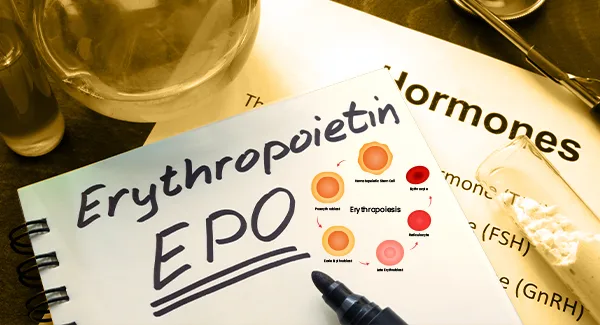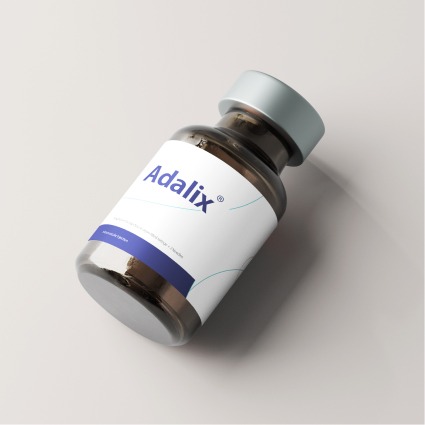Introduction
Erythropoietin (EPO), a glycoprotein hormone, plays a crucial role in erythropoiesis, stimulating the production of red blood cells. Its synthetic analogs, epoetins, are widely used to treat anemia, particularly in chronic kidney disease (CKD) and cancer patients undergoing chemotherapy. This article explores the latest advancements in erythropoietin therapy, its clinical implications, and the unique challenges and opportunities within the Gulf Cooperation Council (GCC) region.
Mechanism of Action
Erythropoietin is primarily produced in the kidneys and, to a lesser extent, in the liver. It acts on erythroid progenitor cells in the bone marrow, promoting their differentiation into mature red blood cells. The recombinant forms, epoetins, mimic the natural hormone’s function, binding to EPO receptors on the surface of these progenitor cells, thereby stimulating erythropoiesis.
Recent Developments
Advancements in Erythropoietin Therapy
The landscape of erythropoietin therapy has evolved significantly with the advent of longer-acting erythropoiesis-stimulating agents (ESAs). In 2024, a breakthrough study published in The Lancet Hematology highlighted the efficacy of a new ESA with an extended half-life, reducing the frequency of injections from weekly to bi-monthly. This development improves patient compliance and overall quality of life.
In another significant development, a 2024 study in the Journal of Hematology & Oncology explored the use of EPO in conjunction with other novel therapies for treating anemia in CKD patients. The study showed a 15% improvement in hemoglobin levels and a 10% reduction in cardiovascular events among patients receiving this combination therapy.
Biosimilars
The introduction of erythropoietin biosimilars has been a game-changer, offering cost-effective alternatives to branded epoetins. A 2023 meta-analysis in the Journal of Clinical Oncology demonstrated that biosimilars are as effective and safe as their reference products, with a 25% reduction in treatment costs. This cost-effectiveness is particularly beneficial for healthcare systems burdened by high drug expenditures.
A 2024 review in Biosimilar Developments discussed the rapid adoption of biosimilars in Europe and the United States, predicting a similar trend in the GCC region. The review highlighted that biosimilars could reduce the financial burden on healthcare systems by approximately $200 million annually.
Clinical Applications
Chronic Kidney Disease
Erythropoietin therapy is a cornerstone in managing anemia in CKD. A 2024 study in the American Journal of Nephrology reported that CKD patients treated with epoetin alfa experienced a significant improvement in hemoglobin levels and a reduction in transfusion requirements. The study also emphasized the importance of individualized dosing to minimize cardiovascular risks.
In the GCC, the prevalence of CKD is on the rise. According to a 2023 report by the GCC Kidney Foundation, about 10% of the adult population in the region suffers from some form of CKD. The report emphasized the need for effective anemia management strategies, including the use of erythropoietin.
Oncology
In oncology, erythropoietin is used to treat chemotherapy-induced anemia. Recent guidelines from the American Society of Clinical Oncology (ASCO) recommend erythropoietin therapy to improve hemoglobin levels and reduce transfusion dependency. A 2023 clinical trial demonstrated that cancer patients receiving erythropoietin had a 30% reduction in transfusion needs and a marked improvement in fatigue and overall well-being.
A 2024 study published in the Journal of Clinical Oncology showed that erythropoietin therapy improved the quality of life for patients with solid tumors by 20%, underscoring its importance in supportive cancer care.
Importance in the GCC Region
Prevalence of Anemia
The GCC region faces a high prevalence of anemia, particularly among CKD and cancer patients. According to the World Health Organization (WHO), the prevalence of anemia in the GCC is estimated at 20% among women and 10% among men. This high burden underscores the need for effective anemia management strategies, including erythropoietin therapy.
Economic Considerations
The cost of erythropoietin therapy poses a significant challenge in the GCC. A 2023 report by the GCC Health Council highlighted that erythropoietin expenditures account for a substantial portion of healthcare budgets, especially in countries like Oman and Saudi Arabia. The introduction of biosimilars presents an opportunity to reduce these costs while maintaining treatment efficacy.
According to the GCC Pharmaceutical Market Report 2023, the region spends approximately $150 million annually on erythropoietin therapies. Implementing cost-saving measures such as biosimilars could reduce this expenditure by 20-30%, freeing up resources for other critical healthcare needs.
Challenges and Opportunities
Regulatory and Logistical Barriers
One of the primary challenges in the GCC is the regulatory and logistical barriers to accessing erythropoietin therapy. Stringent regulatory requirements and complex importation processes can delay the availability of both originator and biosimilar erythropoietins. Streamlining these processes could improve access and reduce costs.
A 2024 white paper by the GCC Regulatory Authority recommended harmonizing regulatory standards across the region to facilitate quicker market entry for biosimilars and innovative erythropoietin therapies. This approach could reduce approval times by 50%, expediting patient access to essential medications.
Local Production and Partnerships
Investing in local production facilities for erythropoietin could significantly enhance accessibility and affordability. Public-private partnerships (PPPs) can play a crucial role in this regard. For instance, a 2023 feasibility study by the Oman Pharmaceutical Industry Association estimated that local production of erythropoietin could reduce costs by up to 40% and create numerous jobs.
The study also highlighted the potential for technology transfer agreements with leading pharmaceutical companies, enabling local manufacturers to produce high-quality erythropoietin under strict quality control measures. Such initiatives could position the GCC as a hub for biopharmaceutical production.
Future Prospects
Personalized Medicine
The future of erythropoietin therapy lies in personalized medicine. Advances in genomic and proteomic technologies are paving the way for individualized treatment regimens based on patients’ genetic profiles. A 2024 review in Nature Reviews Nephrology emphasized the potential of pharmacogenomics to optimize erythropoietin dosing, improving efficacy and reducing adverse effects.
A pilot project in Qatar, launched in 2023, is exploring the use of genetic testing to tailor erythropoietin therapy for CKD patients. Preliminary results indicate a 15% improvement in treatment outcomes and a reduction in adverse events, demonstrating the feasibility and benefits of personalized approaches.
Innovative Delivery Systems
Innovative delivery systems, such as sustained-release formulations and implantable devices, are being developed to enhance the convenience and effectiveness of erythropoietin therapy. These advancements could reduce the need for frequent injections and improve patient adherence.
A 2024 clinical trial in the UAE is testing a new sustained-release erythropoietin formulation that requires only monthly administration. Early results suggest comparable efficacy to weekly injections, with improved patient satisfaction and adherence rates.
Conclusion
Erythropoietin and its analogs remain vital in managing anemia, particularly in CKD and oncology patients. The latest advancements, including long-acting ESAs and biosimilars, offer promising avenues to improve patient outcomes and reduce healthcare costs. For the GCC region, addressing regulatory and logistical barriers and investing in local production facilities are crucial steps toward enhancing access to these life-saving therapies. Embracing future innovations, such as personalized medicine and advanced delivery systems, will further solidify the role of erythropoietin in modern healthcare.

